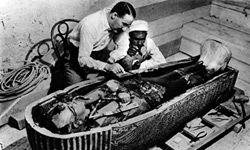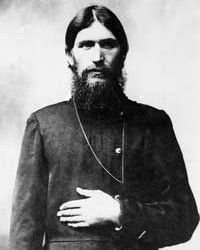Maybe good fortune always seems to escape your grasp. Or perhaps generations of your family have experienced peculiarly similar adversities. Does that mean you've been cursed?
Curses, also known as execrations, have been wreaking hypothetical havoc for centuries. These pesky -- and sometimes deadly -- bearers of bad luck have plagued persons, places and objects ranging from U.S. presidents and ancient tombs to sports teams and sports cars. And throughout the years, tragic events (coincidental or not) have provided plenty of fodder for those who believe that curses exist.
Advertisement
No one really knows for sure whether there's any truth to the 10 famous (and infamous) curses we'll explore in this article, but if you want to take James Dean's car for a spin or dig up an ancient mummy, don't expect us to help!
Head over to the next page to read about the much-rumored curse of James Dean's Little Bastard.





